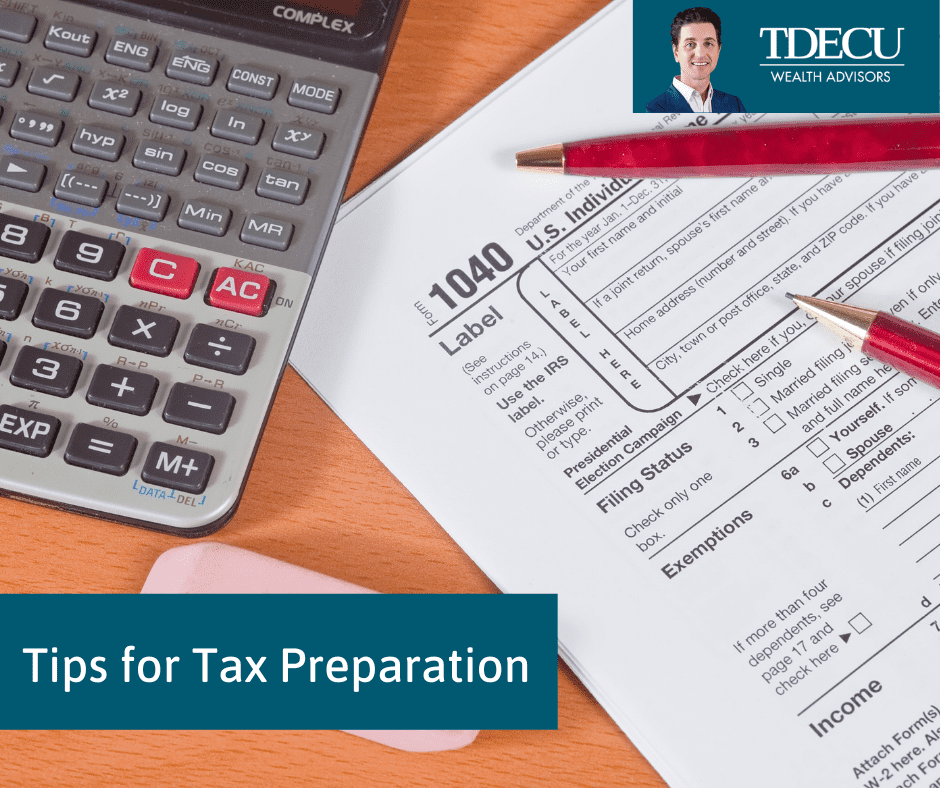In 2020, the government gave taxpayers an automatic six-month extension due to the coronavirus. Individuals who were affected by the damaging wildfires were also given additional time to meet most tax deadlines. However, in 2021, the deadline for submitting your income tax return is scheduled for May 17th for federal tax filing. To avoid a potential late filing penalty, you need to be ready by this date. To prepare to file your 2020 income tax return, keep the following tips in mind.
1. Identify All Income Sources
If you work for an employer, you will need to report the wages noted on your Form W-2 (Wage and Tax Statement). To avoid penalties, your employer is required to provide you with this form by the last day of January, but you can estimate the numbers by viewing your last paystub of the year. Since January 31st will fall on a Sunday in 2021, employers will have until February 1st to provide your Form W-2.1
As a small business owner, self-employed person, or freelancer, your income is your revenue (or 1099 income) minus your business expenses. However, instead of noting the final number on your return, you will need to fill out a schedule that displays both your revenue and expenses. It is important that you comb your records carefully to ensure all expenses are accounted for.
2. Decide If You Can Itemize
Instead of paying income tax on all of your income, you’re able to deduct a certain amount of income and only pay tax on the remaining amount. All taxpayers are given the choice of claiming the standard deduction or itemizing.
For the 2021 tax year, the standard deduction is $12,550 for a single taxpayer and $25,100 for a married couple filing jointly.3 Most people take the standard deduction, but if your qualifying deductions exceed this threshold, you should itemize. Similar to previous years, there is no limitation on itemized deductions.4
Here are the deductions you may claim:
- Unreimbursed medical and dental expenses that exceed 7.5% of your adjusted gross income (AGI)5
- Interest paid on up to $750,000 of your home loan6
- Interest on home-equity loans that were used to substantially improve your home7
- State and local taxes such as property and sales tax paid the previous year, up to $10,0008
- Charitable contributions up to 100% of your AGI9
- Casualty and theft losses worth over 10% of your AGI10
Assess your deductions and determine if they exceed the standard. If so, you may benefit from itemizing.
3. Gather Info for Above-the-Line Deductions
Above-the-line deductions can include interest paid on student loans, contributions to a savings account, and alimony payments. If you’re self-employed, you can also claim above-the-line deductions on health insurance premiums. Regardless if you decide to itemize or claim the standard deduction, you are also able to claim above-the-line deductions. Take some time to gather proof of these deductions, as they can help reduce your tax bill.
These tips cover the basics, but there are a lot of unique tax situations. To help ensure you minimize your tax liability, you may want to consult with a tax professional.
Have specific questions? Don't hesitate to reach out to me today
Wes Garner, CRPC
Principal Wealth Strategist
(281) 269-8669
wgarner@tdecu.org

The opinions voiced in this material are for general information only and are not intended to provide specific advice or recommendations for any individual.
This information is not intended to be a substitute for specific individualized tax advice. We suggest that you discuss your specific tax issues with a qualified tax advisor.
All information is believed to be from reliable sources; however, LPL Financial makes no representation as to its completeness or accuracy.
Sources
1https://www.irs.gov/newsroom/irs-to-employers-remember-february-1-2021-deadline-for-form-w-2-other-wage-statements
2https://www.irs.gov/businesses/small-businesses-self-employed/am-i-required-to-file-a-form-1099-or-other-information-return
3, 4 https://www.irs.gov/newsroom/irs-provides-tax-inflation-adjustments-for-tax-year-2021
5https://www.irs.gov/taxtopics/tc502
6https://taxfoundation.org/home-mortgage-interest-deduction/
7https://www.irs.gov/newsroom/interest-on-home-equity-loans-often-still-deductible-under-new-law#:~:text=The%20Tax%20Cuts%20and%20Jobs,home%20that%20secures%20the%20loan.
8https://www.irs.gov/charities-non-profits/charitable-organizations/charitable-contribution-deductions
9https://www.irs.gov/taxtopics/tc503
10https://www.investopedia.com/terms/c/casualty-loss.asp
https://www.irs.gov/faqs/interest-dividends-other-types-of-income/1099-misc-independent-contractors-and-self-employed/1099-misc-independent-contractors-and-self-employed-3#:~:text=Independent%20contractors%20report%20their%20income,employment%20are%20%24400%20or%20more.
Content Provider: WriterAccess
LPL Tracking 1-05123906
